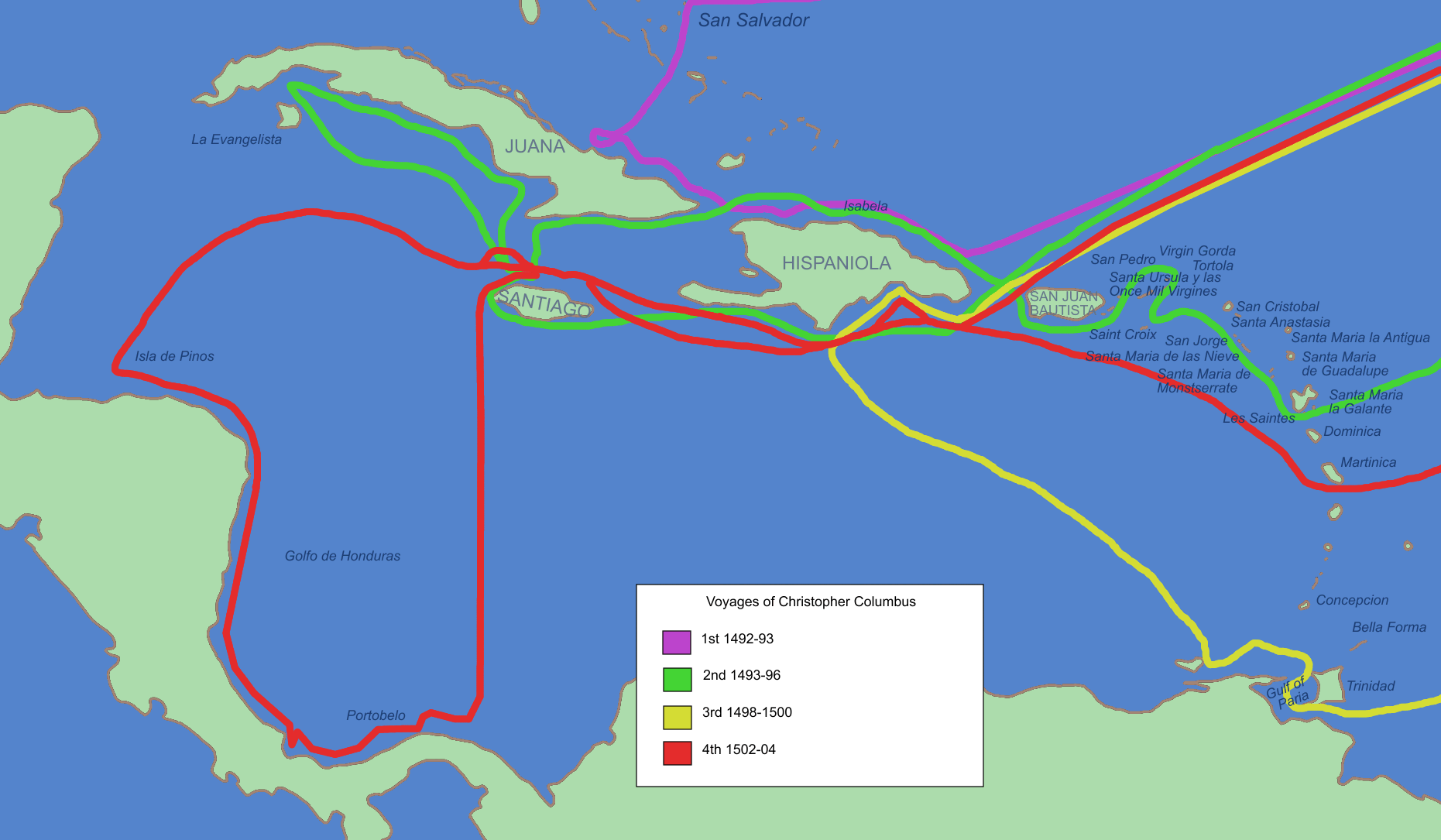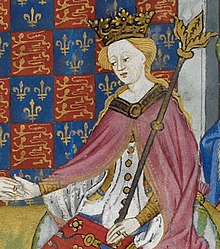Was the Spanish Empire
an asset or liability?
 |
| Voyages of Christopher Columbus |
The rise of the Spanish Empire began in 1492, with Columbus’
discovery of the New World. In many ways it became a huge asset to Spain – in particular
the ruling classes – boosting her reputation to become the richest and [perceived]
most powerful country in Europe. However, liabilities must also be acknowledged
when studying the Spanish Empire; the rapid rise to power led Philip II to
declare bankruptcy on three occasions, whilst the rise of empire essentially
amounted to the genocide of millions of natives, who saw no real benefit of
Spain’s empire.
The Spanish Empire boosted Spain’s reputation – internal and
external – as it grew
throughout the 16th century. Spain appeared
increasingly strong and religiously united, whilst Europe was wracked with
heresy and civil war,
such as the French wars of religion, lasting from 1562-1598. In conquering
Granada and establishing the Spanish Inquisition, Ferdinand and Isabella had
laid down the path to Spanish greatness, by beginning to unify a single religion
across Spain. Furthermore, Ferdinand and Isabella had the Pope issue a special
Bull Inter Caetera which laid claim
to the title of any lands which may be discovered, to ensure superiority over
Portugal. Whilst this encouraged the expansion of the Spanish empire, it did
not act entirely as an asset; the wording of the bull was too vague and
threatening towards Portugal.
Thus, the Treaty of Torsedillas was negotiated in 1494 and ended up giving
Portugal claim to Brazil.
This aside, empire made Spain the richest country in Europe
by 1598, with world wealth pouring into Spanish hands,
hugely benefiting the monarchy and ruling classes. The discovery of gold and
silver brought huge wealth to Spain, with 63 million ducats (a high value,
Venetian coin), coming into Spain from 1555-1600. The physical environment of
the New World was such that gold and silver were discovered in abundance
beneath the ground; this had remained largely untouched by natives, who had no
concept or understanding of monetary value. This hugely increased interest in
the New World, motivating the Spaniards to extend their empire to the point
that ‘the world is not enough’ for Philip II and providing hope for the
discovery of El Dorado. As claimed by Bernal Diaz,
they came ‘to serve God and his majesty…and also to get rich’. From the early
years of the empire’s emergence, Ferdinand had labelled it a crusade (claiming
that they were conquering the New World to spread Christianity, which many
natives were totally unfamiliar with), making them eligible to raise the
cruzada tax, which aided them in funding the expansion of their empire. Profits
from local taxes within colonies passed through the Casa de Contratacion in
Seville, giving the Crown strong control over money from the New World. Additionally,
the monarch(s) were entitled to the royal 5th and by the time
taxation had been added to this, the monarchy inherited approximately 40% of
all money entering Spain from the New World. It is certainly arguable that
Ferdinand and Isabella laid the roots for the Golden Age of Spain, whilst it is
equally debatable that the Spanish Empire began as a predominantly Castilian
feat; the Pope deemed the New World as belonging to Ferninand and Isabella
until their deaths, when it would revert to a Castilian land.
The empire became an enormous source of resources, along with
being a means of great wealth for Spain. Products such as sugar, spices, cotton,
chocolate and tobacco were introduced to Spain as a result of its empire. This
allowed Spain to enjoy an increased range of imports and the similar climate in
Spain and some of its colonies enabled new produce to be grown in Spain, saving
time and money on imports. As with money, imports passed through the Casa de
Contratacion, ensuring strong control over imports. Nonetheless, wealth became
so great that Philip II took advantage of his riches with extravagant spending,
and was forced to declare bankruptcy on three occasions during his rule, whilst
wealth from the empire created greater class divisions in Spain;
even the acquisition of wealth was not entirely an asset.
Despite the seemingly abundant assets of the Spanish empire,
its liabilities must not be ignored. Natives in the New World were affected
adversely by the Spanish Empire and the ruthless behaviour of conquerors, with
millions being killed essentially through genocide. When Pizarro conquered the
Inca Empire of Peru in 1531-1535, his fleet of around 180 Spaniards
successfully defeated 100,000 Incas; Spaniards were technologically advanced
with guns, which the Incas had no access to. Cortes had a similar advantage
when he overthrew Aztec rule in Mexico in 1519-1521. Natives also died as a
result of famine, when their lands were seized for new crops, cattle ranches
etc., and were killed by diseases introduced by Spanish settlers, against which
natives had no immunity. This was a huge liability for natives who lived
nomadically and had no understanding of ownership. Perhaps the most enduring
liability of the Spanish Empire was its introduction of the slave trade. The
high death rate amongst natives led to labour shortages, forcing Spaniards to import
slaves from elsewhere, notably from Africa. Francis Drake, an English privateer,
took a cargo of black Africans into a Spanish port and forced them to buy
slaves; this essentially established the 3-way slave trade, which was not
abolished until the 19th century.
The Spanish Empire was also difficult to govern, as it was
spread over such a vast distance. It was not easy for Spanish monarchs to visit
the colonies they visited (although Charles V spent a large amount of time out
of Spain, including two visits to North Africa), forcing them to rely on
viceroys to govern on their behalf. This prevented anarchy and disorder from
becoming widespread problems across the colonies of the Spanish Empire, but
meant that the monarch was often forced to rely on an inaccurate view of the
empire. Philip II had no first-hand evidence of his empire and its progress,
relying solely on what he was told; the time delay on communication means that
much of Philip’s knowledge is likely to have been out-of-date by the time it
reached him.
The Spanish Empire paved the way to the country’s
greatness. Spain became the most powerful country in Europe, its empire feared
by other states. However, its assets must not be over-credited. Undoubtedly, empire was a huge asset to the
monarchy and ruling classes, as long as it was not over-estimated, nor taken
advantage of. However, the extent of asset is restricted largely to these upper
classes – the bourgeoise, as adopted by Marx. The Spanish Empire was a huge
liability to the natives (particularly the millions who were killed at the
hands of the empire), and made little difference to the working classes. Thus,
the extent to which the Spanish Empire was an asset/liability depends entirely
on social rank.



